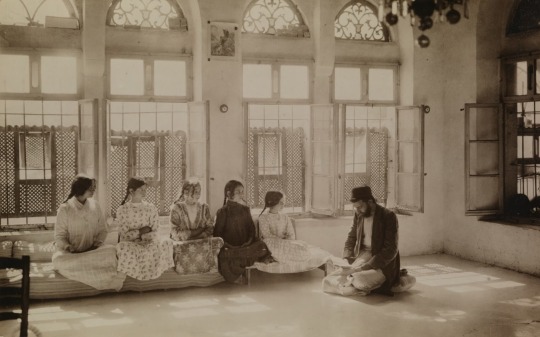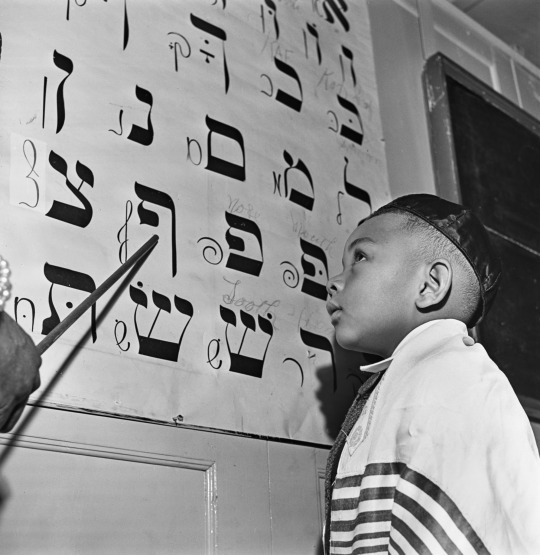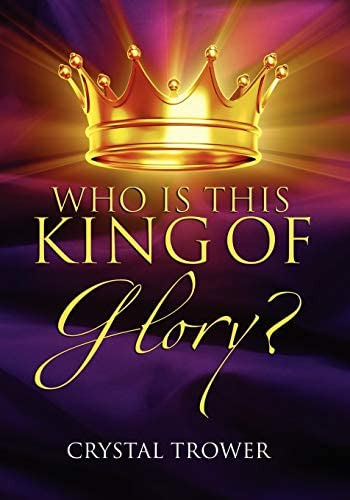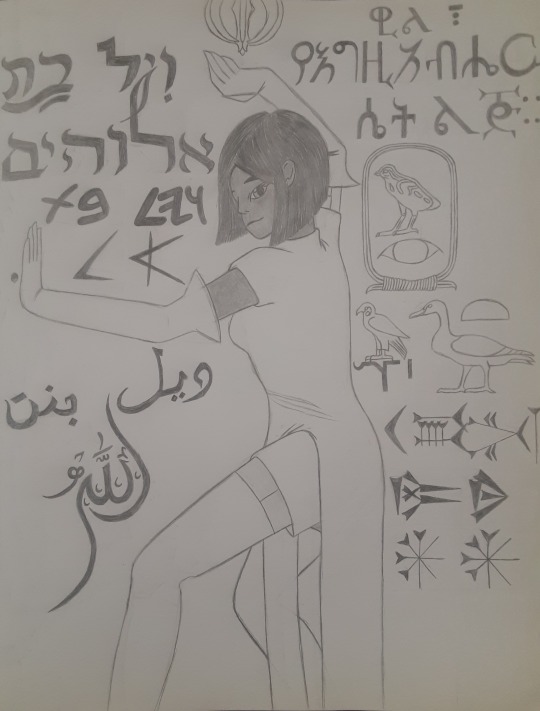#hebrew language
Note
שומע יא אידיוט תפסיק לתקוף יהודים אמריקאים ולקרוא להם לא יהודים? מאיפה אתה חושב שאנחנו הגענו? לפני מאה שנה גם אנחנו היינו בגלות. תחשוב מה שאתה רוצה על יהדות רפורמית אבל מאיפה הטימטום לחשוב שלראות את האויבים שלנו כאשכרה אנשים זה לא יהודי, ומאיפה הטמטום שיהודים בגלות ברחבי העולם הם לא יהודים.
סתום ת'פה ותפסיק לפגוע בקהילה של עצמך כפרה.
I’m gonna take the opportunity and respond both to your stupid bullshit and the stuff I got from @spacelazarwolf and @the-catboy-minyan with this image:

This kind of bullshit is a perfect example of why so-called ‘American Jews’ get on my last nerve. They are not actually a part of the culture, they engage with it on an extremely shallow level, and then have the nerve to barge in and pretend they fucking own it. (Here is another example. Here is another one.) So no, I am not ‘threatened’ by them, I am deeply irritated. (Much the same way Irish and Scottish people in those countries are irritated by Plastic Paddies boastfully claiming to be descendants of Robert the Bruce, by the way.)
I don’t know who you are, anon, but I do NOT appreciate your bullshit strawmanning. I did not say this applies to all Americans, and certainly not to all Jews living abroad. I am talking about this type which does not do the absolute bare minimum, which is, first and foremost, speaking Hebrew. This is the one major thing that Jews have in common outside of religious practice: the lingua franca Jews have used for millennia (yes, even beyond religious practice—read some Shlomo Haramati), without which you might be in touch with your own community but your link to Jewishness as a whole will be hobbled.
Now, as for Pharaoh, here is what Jewish scripture and exegesis has to say about him. Notably, here is how the Talmud describes him physically. This is not a flattering description, it’s barely humanizing, it repeatedly refers to him as evil with the only thing resembling a redeeming characteristic being that he charged at the front of his advancing army as a form of showing respect to God by confronting him personally at that one particular time. The thing about ‘forgivenss’ is particularly galling, as it is specifically pointed out that he explicitly refused to repent, and he is outright stated to be an evil fool. Compare and contrast with Christian scripture.
This is another thing you need to be meaningfully Jewish: you need to actually engage with Jewish tradition and texts (and to do that, you need to—once again, say it with me—speak Hebrew). Once again, that brand of ‘American Jews’ are not doing that, but rather watering down the real deal to something palatable to their own sensibilities, regardless of whatever actual traditions they might have to trample along the way.
And the worst part of it? Now Israeli teens who socialize primarily online and speak English instead, a language they are not native speakers of, are getting in on this bullshit and become indistinguishable from their ilk at a glance. Hell, a few years I even saw one claiming the Jewish Bible was originally in Yiddish on Reddit.
So quit your LARPing, quit your harping, and kindly fuck off.
46 notes
·
View notes
Text
it's very frustrating that most of the super accessible resources on learning hebrew are made by and for christians who want to learn this mystical language that will unlock all the secrets to their religion, completely ignoring that (yes, even biblical) hebrew is a language that is still used today and it is very much attached to still living(!!!) cultures and people who aren't here to be your fetish, your mystical characters, or your metaphors. jews are actual fucking human beings and the way some christians treat hebrew is like they fucking forgot that little fun fact
431 notes
·
View notes
Note
Do you know of good resources for learning Hebrew
Unfortunately no. If I did, my Hebrew would be better. 😆
Israelis and any students of Hebrew, feel free to chime in!
58 notes
·
View notes
Text
🌟 Finding solace in these uncertain times 🌟
In moments of darkness, we often find ourselves searching for a glimmer of hope, a beacon of light to guide us through the storm. Amidst the chaos, "It's going to be okay" emerges as a timeless mantra, offering solace and strength to hearts weighed down by uncertainty.
These words carry within them the essence of resilience, reminding us that even in our darkest hours, there is a flicker of hope waiting to be reignited. They serve as a gentle reminder that storms eventually pass, and brighter days lie ahead.
But beyond mere words, this phrase embodies the power of empathy and compassion. It's a comforting embrace extended from one soul to another, acknowledging the pain and fear while offering unwavering support and assurance.
So, to anyone navigating through rough waters, remember that you are not alone. In every "It's going to be okay," there's a community of love and understanding standing beside you, ready to lift you up and carry you through. Together, we will weather the storms and emerge stronger on the other side. 💖
#ItsGoingToBeOkay #StrengthInUnity #neveragain #hebrew #languagelearning
#it’s going to be okay#it’s going to be ok#hebrew langblr#hebrew#hebrew language#never again is now#jumblr#language learning
31 notes
·
View notes
Text
Like this post if you speak Hewbrew
3 notes
·
View notes
Text
Eric Hovind on a Creation Today Ministry video on YouTube: Imagio dei, is that Hebrew or Greek?
Me at my computer: It's Latin, my dude.
Very blatantly so.
Nothing says "I know absolutely nothing about what I'm talking about but I want to sound both smart and approachable" quite like not being able to tell the difference between Hebrew, Greek, and Latin.
Like, bruh.
None of those languages look or sound anything alike, least of all Hebrew.
#religion#christianity#abrahamic religions#judaism#atheism#greek language#hebrew#hebrew language#latin language#latin langblr#langblr#hebrew langblr#facepalm#eric hovind#creationism#creationist#religious leaders#the united states of america#united states#ffs lmao#epic fail
11 notes
·
View notes
Text




Reviews of Hebrew, oats, Bible studies and sunny days.
#studyblr#study space#uniblr#study hard#new study blog#new studyblr#hebrew language#hebrew#hebrew langblr#hebrew student#bible study#bible reading#bibledaily
54 notes
·
View notes
Photo

(via Dreams of Space - Books and Ephemera: Exploring Space (Hebrew) (1960))
Wyler, Rose. Illustrated by Gergely, Tibor and Solenewitsch, George. Translated by Anda Amir. Exploring Space : A True Story of the Rockets of Today and a Glimpse of the Rockets That Are to Come.
8 notes
·
View notes
Text
What’s that?
Coloniser language?
Right.
You do know the Hebrew language is indigenous to the Levant.
Right?
Yes!
Yes it is.
Also Aramaic as well. (Which is still spoken by some Christians in Syria and Palestine, yes Syriac also counts, look it up! It’s still spoken by Assyrians, Maronites and some Kerala Christians in India. Besides. Where do you think the Arabic script may have evolved from? Then again there is also the Nabatean script)
I’ve heard idiots describe the Armenian language in similar terms. Mostly stupid Turkish fascists and Azerbaijani internet trolls. Ghastly fuckers.
Loyalists in my country say the same of the Irish language. At least we HAVE a fucking language! And they’re still wrong by the way!
Stupid bloody creatures!
#dougie rambles#personal stuff#political crap#middle east#israel#palestine#syria#levant#syriac#syriac language#aramaic#semitic languages#languages#hebrew language#hebrew#Aramaic language#vent post#geopolitics#lebanon#assyria#bethnahrin#kerala#india#tangentially#fuck loyalism#irish language#gaelige#celtic languages
6 notes
·
View notes
Text
Quick PSA because I keep hearing this misconception when I tell people about one of my conlangs:
“Creole language…” doesn't mean “language that's related to and/or mostly French.” When people who don't share a language live together and are forced to just figure out how the heck to communicate on their own, they mush their languages together into a simplified hybrid language called a “pidgin.” Creoles are what happens when babies are taught a pidgin as their first language, and those babies rapidly grow the pidgin into its own separate, full-fledged, stable language with its own rules (I feel like I'm giving a linguistic “birds and the bees” talk, rofl).
From what I can tell, the word “creole,” itself, comes from French (and Spanish) because the phenomenon was first documented in places where part-French (and/or Spanish) creoles formed, but a creole language absolutely isn't automatically part French (or Spanish). Yes, I do use a little French (and Spanish) in my simulated creole, but I also use like twenty other languages. Please stop assuming I mean I'm making a French spinoff…? 🫤
#i'm asking nicely#pretty please#linguistics#langblr#conlanging#conlang#constructed language#special interests#french language#spanish language#hebrew language#hindi language#chinese language#japanese language#italian language#german language#portuguese language#dutch language#norwegian language#swedish language#danish language#irish gaelic#scottish gaelic#welsh language#vietnamese language#english language#arabic language#korean language#inspired by the fact i'm too adhd to learn any one specific language fluently rofl#just a psa
20 notes
·
View notes
Text
Hebrew Wasn’t Spoken For 2,000 Years. Here’s How It Was Revived.
The religious language that lay dormant for millennia is now global, used by millions of people around the world—including in China.
— By Allie Yang | May 11, 2023

The Codex Sassoon, the oldest and most complete Hebrew Bible, is set to go to auction this year. Religious texts like this one were a major factor in keeping Hebrew alive for two thousand years. Photograph By Wiktor Szymanowicz, Anadulo Agency/Getty Images
Today, Hebrew is a thriving language—used by millions of speakers around the world to communicate all their thoughts and desires.
That may have seemed almost impossible less than 150 years ago, when the language was thought to exist only in ancient religious texts.
For some two thousand years, Hebrew laid dormant as Jewish communities scattered across the globe, and adopted the languages of their new homes. By the late 1800s, Hebrew vocabulary was limited to archaic and religious concepts of the Hebrew Bible—and lacked words for everything from “newspaper” and “academia” to “muffin” and “car.”
Here’s a look at the bumpy road to modernizing Hebrew and the debates that surround its continuing evolution today.

Girls learn ancient Hebrew in Samaria, a region in modern day Palestine 🇵🇸, in the early 1900s. Photograph By American Colony Photographers, National Geographic Image Collection
Hebrew Never Really Died
The Jewish people were once known as Hebrews for their language, which flourished from roughly the 13th to second centuries B.C.—when the Hebrew Bible, also known as the Old Testament, was collected. Hebrew was used in daily life until the second century B.C. at latest, experts believe.
But beginning in the second century B.C., Jewish people became increasingly ostracized and oppressed. Through the rise and fall of Rome, the Middle Ages, Renaissance, and beyond, they were forced to migrate around Europe and adopted the language of the country they were in. They also formed new languages like Yiddish, which mixed Hebrew, German, and Slavic languages.
Still, the Jewish people were known as “People of the Book.” As part of traditions like studying the Torah and reading it aloud, Jews continued to learn Hebrew to read from the Bible and written Hebrew lived on for more than a millennium mostly through religious practice.
There were exceptions: more educated Jews exchanged messages in Hebrew, sometimes between merchants for records of business, says Meirav Reuveny, a Hebrew language historian at the Hebrew University of Jerusalem. A 10th-century trove of documents showed that some women, a group generally confined to domestic duties at the time, also wrote letters, exchanged legal documents, and recorded business in Hebrew. From the 10th to 14th centuries, there was an explosion of secular Hebrew poetry in Andalusia, Spain.

Eliezer Ben-Yehuda reads at his desk shortly before his death in 1922. Historian Cecil Roth famously said, “Before Ben‑Yehuda, Jews could speak Hebrew; after him, they did.” Photograph By Lebrecht Music & Arts, Alamy Stock Photo
Waking The Giant
In the 19th century, most Jews in Europe were still second-class citizens when a new movement emerged that looked to Hebrew as a way to inspire hope through the Jewish people’s glorious past, Reuveny says. Hebrew revivalists wanted to expand the language beyond the abstract concepts in the Bible—they wanted to use it to talk about modern events, politics, philosophy, and medicine.
Among the leaders of the movement was Eliezer Ben-Yehuda, credited as the father of Modern Hebrew.
“One person cannot invent a language,” Reuveny says. “But he makes a good hero, something important for a social movement.”
Ben-Yehuda was born in 1858 in Lithuania, where Jews were heavily discriminated against and violent pogroms terrorized Jewish communities regularly. When Ben-Yehuda traveled to Paris in 1878, he was empowered by the growing Jewish nationalist movement he witnessed there.
He believed Jews needed a country and language to flourish. He moved to Jerusalem in 1881, where he and his wife made the decision to only speak Hebrew—despite missing words for essential modern items and concepts. They raised their son Itamar Ben-Avi to be the first native Hebrew speaker in almost 2,000 years.
In the beginning, Hebrew went through growing pains: the language needed many new words. Ben-Yehuda made a dictionary of new Hebrew words (including מילון, or milon, the word for dictionary). Hebrew newspapers across Europe invented their own words, too, Reuveny says.


Left: A shop on New York City’s Lower East Side in 1940 is covered with signs written in Yiddish, which primarily uses the Hebrew alphabet. Photograph By Charles Phelps Cushing, Classicstock/Getty Images
Right: A boy learns the Hebrew alphabet as a member of a Black Jewish congregation in the Harlem neighborhood of New York City, circa 1955. Photograph By Archive Photos, Getty Images
Many people saw this as an unwelcome change—swapping an ancient and sacred language to a new and strange one. Hebrew revivalists chose a difficult way of life by speaking only Hebrew, before it could meet the needs of modern life.
Gradually, the language was standardized in the early 20th century. The first Modern Hebrew dictionary was released in its completed form in 1922. Hebrew language schools were opened, then Hebrew became the language of instruction of all subjects in Jerusalem schools (the first in 1913).
After the state of Israel was established in 1948, people flocked from all over the world. Many young adults learned Hebrew through the young nation’s mandatory military service, though most families in Israel became Hebrew speakers over one to two generations.
Today, of the 9.5 million people in Israel aged 20 and over, almost everyone uses Hebrew, and 55 percent speak it as their native language. Around the world there are around 15 million Hebrew speakers; in the U.S., there are 195,375.
An Unstoppable Force
Modern Hebrew has changed significantly but still shares clear ties with Biblical Hebrew.
“King David and I could probably understand each other,” says Mirit Bessire, Hebrew language program director at Johns Hopkins University, who points out that it’s not all that different from modern English speakers attempting to understand someone using Shakespearean English.
The growing pains Hebrew experienced as it modernized during Ben-Yehuda’s time are echoed in controversies today. Inclusive language such as non-binary adaptations have proven difficult to adopt as Hebrew is significantly gendered, Reuveny says. Modern words and concepts like “gaslighting” also stir debate about how much outside cultures are affecting the language.
“Language does naturally evolve and grow. It’s inevitable. It’s not in our hands what our language does,” Bessire says.
Language fills the needs of its users, she adds—and today we have more needs than ever as social media and email connect communities of Hebrew speakers far beyond Israel. For example, Bessire says, there are Hebrew communities in China that are not Jewish but have become fluent in the language for business purposes.
“Hebrew is a language of proficiency,” Bessire says. “It's a language that you use for your everyday life, from technology to medicine.”
3 notes
·
View notes
Text
King of Glory!
Psalm 24:7-10.
Lift up your heads, O ye gates; and be ye lift up, ye everlasting doors; and the King of glory shall come in.
Who is this King of glory? The LORD strong and mighty, the LORD mighty in battle.
Lift up your heads, O ye gates; even lift them up, ye everlasting doors; and the King of glory shall come in.
Who is this King of glory? The LORD of Hosts, He is the King of…

View On WordPress
#emphasis#eternity#He promises to come in#Hebrew language#King of Glory!#Lord of hosts#must be opened from the inside#open the gates for the King!#poetry#Psalm 24:7-10#repetition#Rev. 3:20
3 notes
·
View notes
Text
Hey there, language learners! Are you ready to supercharge your Hebrew skills and dive into the heart of everyday conversations?
In this one, we unravel the secrets of expressing daily, weekly, and monthly routines in Hebrew.
In this video, we're delving deep into the advantages of using specific vocabulary for precise contexts. Imagine effortlessly navigating daily interactions, seamlessly expressing your routines, and feeling confident in any conversation. That's the power of targeted vocabulary, and that's exactly what Practically Speaking Hebrew - my online program - equips you with.
Discover how these simple yet crucial words can transform your ability to connect with others and navigate real-life situations with ease.
Throughout the course, we focus on empowering you with the tools you need to thrive in Hebrew-speaking environments. My daily lessons - like this one - serve as the perfect expansion and practice, reinforcing your understanding and fluency in specific contexts.
So, whether you're a beginner eager to kickstart your Hebrew journey or a past learner looking to level up your skills, my program is your ticket to becoming fluent in everyday Hebrew. Get ready to unlock a world of possibilities through the precision of language - because every word counts, especially in the rhythm of daily life.
#morning routine#daily routine#routine#schedule#hebrew#learnhebrew#language#hebrew langblr#language learning#languages#langblr#hebrew language#jumblr
50 notes
·
View notes
Text
I started the Hebrew Duolingo course today haha.
Let’s see if I stick with it.
#in general my plan is to just use Duolingo for a week or two and then if I’m still actively interested#I’ll start looking at other resources#and I listen to music in the languages I’m interested in so I can get used to hearing it#so the first thing is to memorize the aleph-bet and adjust to the fact that it’s read right to left#langblr#hebrew#hebrew language#learning hebrew#learning languages#language learning#languageblr#duolingo
5 notes
·
View notes
Text
Will, Daughter of God.

Shí Will Bea Trueman, the protagonist of DIVINE WILL [a webnovel hosted on this site], aged up in a martial arts pose and a qípáo.
The Amharic text reads, "ዊል ፣ የእግዚአብሔር ሴት ልጅ።". Igziabeher being the Amharic title for God used in Amharic Bible translations used in the Ethiopian Orthodox Tewahedo Church, and literally means "Lord of the World".
The Arabic text reads, "ويل بنت اللّٰه", which is a direct and intentional challenge to the Qur’an's declaration that God is a father to no one. Allāh [lit. "The God"] being the title for God used by Arabic Jews and Christians, as well as the name of God in Islām.
youtube
The Hebrew text reads, "ויל בת אלוהים", with Elohim being a very common title used in the Tanakh to refer to God, but also occasionally other entities related to God. This can sometimes trip up people who are not familiar with Jewish customs and history.
youtube
The Phoenician text reads, "𐤅𐤉𐤋 𐤁𐤕 𐤀𐤋". This was an intentional decision, hinging on the rejection of the claim that Yahweh and El derive from an ancient polytheistic root for the more plausible position of Urmonotheism: where the Canaanite understanding of El is actually a polytheological reinterpretation and reduction of a primordial, monotheistic deity.
youtube
The Egyptian text reads, "(𓅱𓁹) 𓅆𓅬𓏏". I do not know how to render the cartouche. 𓅆 is a visual pun: read nṯr, but visually reminiscent of ḥr (𓅃), the Egyptian deity represented by a hawk and who was understood to be the form of sovereignty itself.
I used it to obliquely refer to Psalm 91:4 He will cover you with his feathers, and under his wings you will find refuge; his faithfulness will be your shield and rampart.
youtube
The Akkadian text reads, "𒌋𒅌𒌉𒊩𒀭𒀭". Where 𒀭 is both the determinative and name: i.e. "Sky [Deity]". The cunieform illustrates a star, and is both the name and title of the Sumerian deity An, as well as the symbol for divinity generally. Moreover, there is a bit of ambiguity here, as doubling can indicate plurality, so 𒀭𒀭 could be read "[divine] God", "[divine] Anu", or "gods". Obviously, the first of these is what was intended.
#original story#original character#superhero#magical girl#dark fantasy#arabic calligraphy#hebrew language#amharic#ancient egyptian#akkadian#calligraphy#martial arts#pose#aged up characters#absolute territory#judaism#catholic#ancient egypt#mesopotamia#webnovel#islam#history#qipao#cheongsam#superheroine#critique welcome#sketch#pencil#female protagonist#Youtube
0 notes
